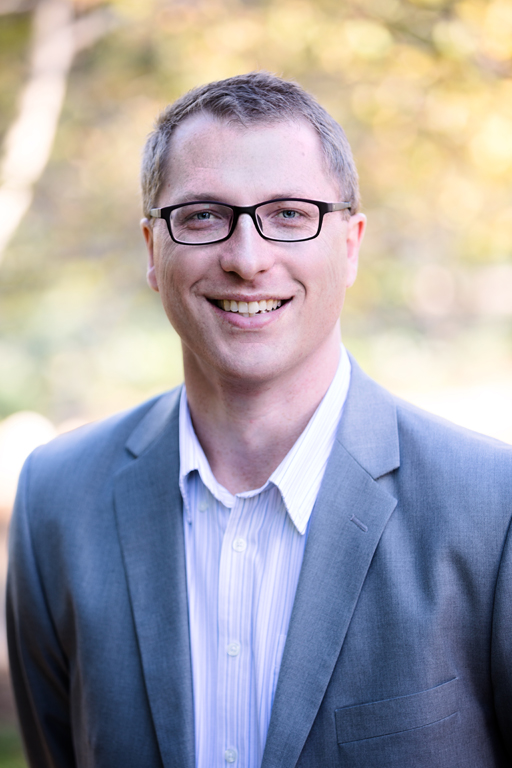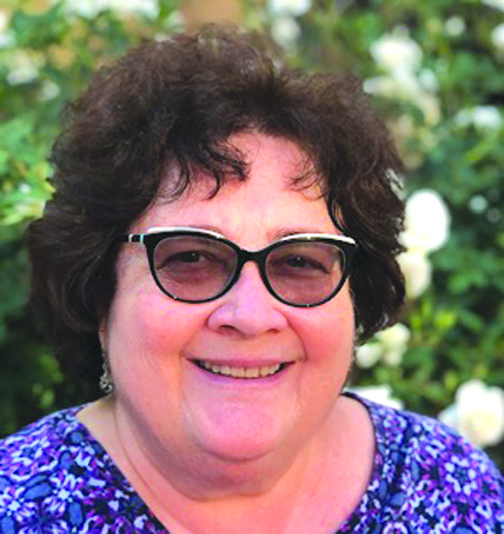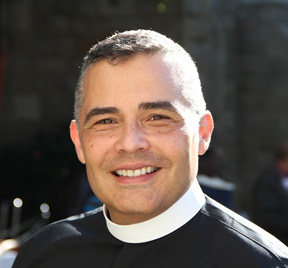Question: Even though her father and I thought we took precautions to avoid COVID, our youngest daughter, age 7, became very ill with the virus. She was in the hospital and on a ventilator. We’re not certain where she became infected. Praise God she is well and at home after a month of treatment.
Now we’re being very careful and observing every single suggested protocol. We are from a large family that is planning to get together at my brother’s house for Thanksgiving. I told him we’re not taking any chances because, in addition to ourselves, we have two other children to protect. Although he understands, his wife is making an issue of our not being there with the rest of the family.
What does it take for people to understand this virus is dangerous and often lethal? My sister-in-law and I have had a great relationship until now. I’m feeling so unsettled. I love to be with my family – just not this time and probably not Christmas – after all we’ve been through. Is there anything I can say to my sister-in-law to help her understand the seriousness of the situation?
~ Rather Safe Than Sorry
Dear Rather Safe Than Sorry,
First, I echo your gratitude that your daughter is well after her illness. We experience so much powerlessness when our kids are sick, especially when they are hospitalized. I share your caution regarding COVID-19; my family has made it a priority to protect ourselves and our community by following the safeguards.
When my wife and I were expecting our first child, I had a heart-to-heart with my mother-in-law. I would not bring my daughter to her home if she continued to smoke. She would be welcome to visit, but no smoking while at our home either (inside or out). Thankfully, she spent the months leading up to the birth to kick the habit.
Strangely too many people want immunity from the implications of their choices. Mask and vaccine mandates are designed to allow us to return to public gatherings. If you do not want to get vaccinated or wear a mask – for whatever reason – then you shouldn’t return to public gatherings. Frustratingly, it is our most vulnerable populations that are at greatest risk of this sort of selfish behavior.
I think a first step is to share in the sense of loss your sister-in-law is feeling: “I am going to miss being with you, too, but after our experience in the hospital we just don’t want to take the risk.” Hopefully your empathy with her will be returned.
Second, suggest alternatives that might best replicate the joy of gathering together. Zoom is one way, but maybe there can be a shared recipe that is made or an online game that everyone can play (think Jackbox or boardgamearena.com.
Finally, spell out the implications of choices that are being made. You can honor the choice of people to not be vaccinated or take the pandemic seriously – they should honor the implication of social isolation that comes with it. My hope would be that, like my mother-in-law, people choose the health and safety of themselves and those they love over winning some minor battle in a culture war.
However your situation resolves itself, I hope that you are able to find cause to be thankful during this season and enjoy the company of those you love, even if it is at a distance.

Rev. Kyle Sears
kylesears@lacanadachurch.org
Dear Rather Safe Than Sorry,
When you say you took precautions to avoid COVID, I noticed you did not say you were all vaccinated. Are you vaccinated? If that wasn’t part of your precautionary protocol then you did not take the highly effective, excellent protocol that is readily available and free to all. Thank God your 7-year-old daughter is okay at this time!
Then when you say, “Now we’re being very careful and observing every single suggested protocol,” you still did not say, “Now we are all vaccinated.” It seems to me that you are not vaccinated. I don’t even know what you mean by “observing every single suggested protocol.” If you and your children are not vaccinated then make no mistake and know that you have not followed “every single suggested protocol.” I am hoping you haven’t listened to the wrong suggested protocols, like taking ivermectin (commonly used to treat infections in animals). I hope you mean wearing masks at congregant locations and having the whole family vaccinated, even your 7-year-old when she is six months past her COVID bout.
Now about Thanksgiving. You have every right to assert your judgment and protect your family. It is terribly disruptive to family traditions and relationships to skip holidays that everyone expects to share. However, certainly your sister-in-law knows about the over 700,000 souls we have lost in our country to this dreadful virus. This is a factor that overrides your sister-in-law’s feelings. Sometimes, in spite of tender feelings, we all must do the things we know are correct for our family. As you know only too well because of the terrible time your daughter had, the virus does not respect feelings or opinions. COVID does what is does without your consent or objection. Tell her that. Tell her that it doesn’t matter how much you would wish to come as usual but you must keep the physical health and well-being of those you are responsible for above all other considerations and you look forward to returning to normal traditions as soon as it is safe for your family.
You asked a very good question: “What does it take for people to understand this virus is dangerous and often lethal?” Some people don’t get it and, apparently, they never will. You must follow what your conscious dictates to you. Try Zoom or Facetime to include your extended family.
Stay healthy and safe.

jbieber1155@aol.com
Question: I have a brother who has struggled with addiction since he was in his mid-teens and is now 29. He has been in and out of rehab facilities and always goes back to using drugs. Our parents have given up on him but I don’t want to. I fear for his life because he has several friends who have died from overdosing. I’ve had several serious talks with him when he always promises to give up drugs, but the talks aren’t working either. I’m told to let him hit “rock bottom” but my fear is that means he may die.
Is there anything I can do to get him on the right track and enjoy a drug-free life? ~ My Brother’s Keeper
Dear My Brother’s Keeper,
You are not alone; many are struggling with loved ones who seem headed for an early death due to substance abuse. You certainly have a realistic concern.
Despite being 50 years since then-President Nixon declared the war on drugs a recent headline noted 100,000 drug overdose deaths in the U.S. in a 12-month period. And it’s not just alcohol, tobacco, illegal street drugs and misused prescriptions that kill Americans. A CNN article reports the United States has just recorded its highest increase in rates of homicide in modern history, according to the U.S. Centers for Disease Control and Prevention. Plus refined sugar, animal fat and excessive salt in our diets, along with lack of exercise, are also shortening lives.
What might be causing all this self-destructive behavior? Some obvious possibilities are depression and anxiety caused by climate change, COVID-19 social isolation, increased awareness of uncomfortable truths about the genocidal origins of our nation, too much emphasis on material acquisitions, and a contentious, violence-filled political scene.
Every individual is unique. People in your brother’s generation lack opportunities and resources taken for granted by those of us in earlier generations.
How can you help your brother in his quest to be clean and sober? Some have found success in treatment facilities and/or with clergy offering counseling; others with psychologists, psychiatrists and family therapists, faith-based and secular 12 step programs, and non and for profit organizations. But as his history demonstrates, results are mixed.
There’s another approach in Johann Hari’s “Chasing the Scream” published in 2015, which argues that addiction stems from lack of human connection and the war on drugs approach made things much worse. The film “The United States vs. Billie Holiday,” based on the book, vividly illustrates the flaws in our criminal justice system. With this in mind consider your brother’s life. Why might he need to use? What pain could he be treating?
I think nutrition is important. Perhaps you can steer him toward more healthful eating. Exercise is also important. A walk outside without electronic devices in hand is good therapy. I think we need relief from the constant bombardment of all our senses by so many artificial means.
I applaud your kindness and willingness to help your brother and wish you the best outcome. I must also caution that you cannot do the work for him; go easy on yourself and be mindful of self care.

Sharon Weisman
sharon@jetcafe.org
Dear My Brother’s Keeper,
The way you call yourself took me immediately to the same words in the book of Genesis when Cain responded to God: “Am I my brother’s keeper?” (Genesis 4:9) and I am happy to read that, unlike Cain, you feel in your heart that you are your brother’s keeper. Because of your great love for him, you share the same fear that many people with loved ones with addictions fear: “to lose them to an overdose.” You love your brother, you want him to stop using drugs, you have tried, and it seems that nothing is working. He has tried to change his behavior by going to rehab facilities and that has not worked either.
According to some experts in substance abuse, the change that constitutes recovery involves behavioral change but it must also involve transformation, which takes place much deeper within us. For example, the Big Book of Alcoholics Anonymous suggests not just changing behavior but maintaining a healthy spiritual condition on a daily basis. You listen to your brother and try to understand him and you pray for him, and yet you may still feel that persistent sense of inadequacy and uneasiness. I wonder if you have found your own keeper; have you? Your brother’s recovery can be a long process and the negative impact on your own health, outlook and well-being can multiply over time. To be able to continue helping him in the long run, it is important that you manage your stress, practice acceptance and maintain other interests and relationships, among other things, but above all it is important that you find your own keeper.
Talking to others who are facing similar challenges can help you find comfort, reassurance and new ways of coping, and help your brother. Have you considered joining a fellowship group for people like you who are trying to help a loved one with a drug addiction? One of those groups is Narcotics Anonymous and you can find more information about them at www.todayna.org (http://www.todayna.org/. I invite you to reach out to them and talk to someone in hopes that you may find not only the support that you need (your keeper) but also ways to support your brother. You want to help your brother stop using drugs and, beyond that, it seems that you would like for him to transform his life and live the very best life that he was created to live.
I am grateful that you are in his life to help him realize that he is loved, and that he is not alone. You are the one who can understand what he is going through, talk to him about his drug abuse and support him on his recovery. You are your brother’s keeper and I am inviting you to find your own keeper so that you can continue supporting your brother on his journey while taking care of yourself.
You and your brother are in my prayers for practical solutions to manifest in your lives.

Rev. Antonio Gallardo
agallardo@stlukeslacrescenta.org
